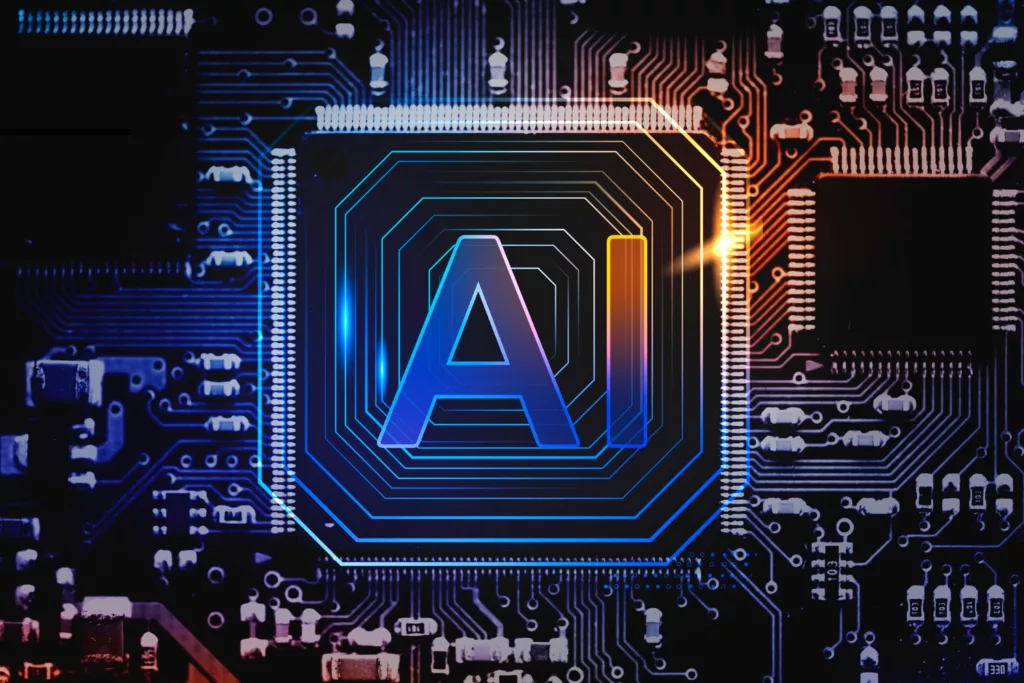Artificial Intelligence (AI) has emerged as a powerful catalyst for driving business success across industries. From enhancing business intelligence to revolutionizing data analytics and streamlining operations, AI technologies are reshaping the way companies operate and make critical decisions. In this article, we will explore how AI is transforming businesses by empowering business intelligence, analytics, and operations for sustained growth and innovation.
Introduction: The Impact of AI on Business

Artificial Intelligence is revolutionizing the business landscape by unlocking new opportunities for growth, efficiency, and competitive advantage. Companies across various sectors are embracing AI technologies to harness the potential of data and make data-driven decisions.
Empowering Business Intelligence with AI
AI-Driven Data Collection and Integration
AI technologies enable businesses to collect, process, and integrate vast amounts of data from multiple sources. This data aggregation provides a comprehensive view of business performance and market trends, enhancing decision-making.
Predictive Analytics for Informed Decision-Making
AI-powered predictive analytics leverage historical data to forecast future trends and potential outcomes. This empowers businesses to make informed decisions, optimize resources, and identify growth opportunities.
Revolutionizing Data Analytics with AI
AI-Powered Data Processing and Visualization
AI automates data processing tasks, significantly reducing the time and effort required for data analysis. Moreover, AI-driven data visualization tools make complex data more accessible and actionable.
Real-Time Analytics for Agility
AI enables real-time data analysis, allowing businesses to respond swiftly to changing market dynamics and customer demands. Real-time analytics facilitates agile decision-making for competitive advantage.
Streamlining Operations with AI
AI-Enabled Process Automation
AI technologies automate repetitive and manual tasks, freeing up human resources for more strategic and creative endeavors. Process automation improves operational efficiency and reduces errors.
Supply Chain Optimization with AI
AI optimizes supply chain management by analyzing data to predict demand, identify inefficiencies, and streamline logistics. This leads to improved inventory management and reduced costs.
AI for Personalized Customer Experiences
AI-Powered Customer Segmentation
AI algorithms analyze customer data to segment audiences based on behavior, preferences, and demographics. This enables businesses to deliver personalized marketing and tailored product offerings.
Chatbots for Enhanced Customer Support
AI-powered chatbots provide instant and personalized customer support, addressing inquiries and resolving issues efficiently. Chatbots enhance customer satisfaction and support scalability.
Leveraging AI in Financial Decision-Making
AI-Based Risk Assessment
AI-powered risk assessment models analyze financial data and market trends to evaluate investment risks. This helps financial institutions make well-informed decisions and manage portfolios effectively.
Algorithmic Trading with AI
AI-driven algorithms execute trades based on real-time market data and predictive analytics. Algorithmic trading enhances trade execution speed and accuracy, optimizing investment returns.
AI in Healthcare Operations and Innovation
AI-Driven Medical Imaging and Diagnostics
AI technologies analyze medical images to aid in diagnosing diseases, improving diagnostic accuracy, and enabling faster and more effective treatment.
AI for Drug Discovery and Development
AI accelerates drug discovery by analyzing vast datasets and simulating molecular interactions. AI-driven drug development expedites the process of bringing new therapies to the market.
Addressing AI Challenges: Ethical Considerations and Bias
Ethical AI Development and Usage
Businesses must prioritize ethical AI development to ensure transparency, privacy, and fairness in AI applications. Ethical considerations are critical to building trust with customers and stakeholders.
Mitigating Bias in AI Algorithms
AI algorithms can inadvertently perpetuate biases present in training data. Businesses must actively work to mitigate bias and ensure AI applications are unbiased and inclusive.
The Future of AI in Business: Embracing the AI-Powered Era

There are various AI-powered tools for data analytics, including automated data processing platforms, data visualization tools, and predictive analytics software.
AI-Driven Innovation and Disruption
The continuous evolution of AI technologies will spur further innovation and disrupt traditional business models. Embracing AI-driven innovation will be key to staying competitive.
Human-AI Collaboration for Productivity
The collaboration between humans and AI, known as augmented intelligence, will enhance productivity by combining human creativity and decision-making with AI’s computational power.
Conclusion:
AI technologies have become indispensable for driving business success in today’s data-driven world. From empowering business intelligence and analytics to streamlining operations and enhancing customer experiences, AI is reshaping industries and unlocking new possibilities for growth and innovation. By embracing AI responsibly and leveraging its potential, businesses can stay ahead of the curve and thrive in the AI-powered era.
Frequently Asked Questions
Answer: There are various AI-powered tools for data analytics, including automated data processing platforms, data visualization tools, and predictive analytics software.
Answer: AI can optimize supply chain operations by analyzing data to predict demand, identify inefficiencies, and automate logistics processes for better efficiency and cost-effectiveness.
Answer: AI-powered risk assessment models enable financial institutions to analyze large volumes of data and make data-driven decisions for managing portfolios and mitigating investment risks.
Answer: Ethical considerations in AI development include ensuring transparency, fairness, and privacy, as well as addressing potential biases in AI algorithms.
Answer: AI-powered chatbots provide instant and personalized customer support, delivering quick responses to inquiries, enhancing customer satisfaction, and improving overall customer engagement.




Leave a Reply